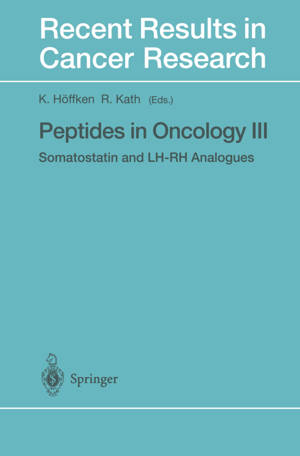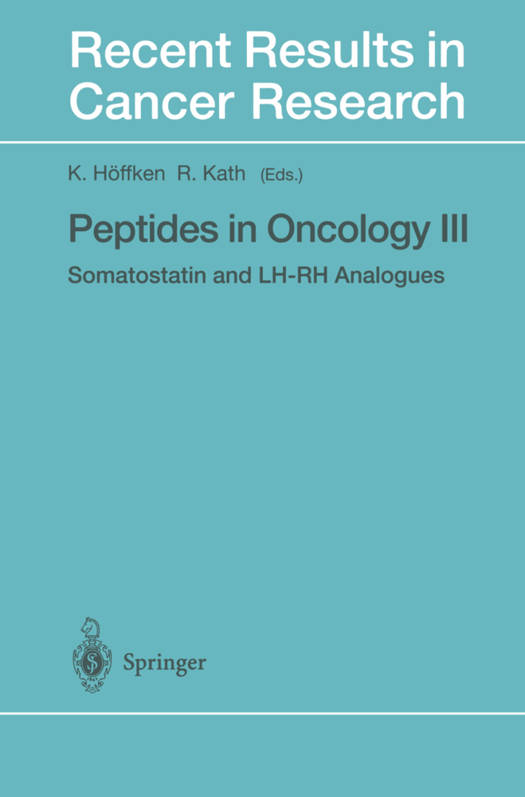
Je cadeautjes zeker op tijd in huis hebben voor de feestdagen? Kom langs in onze winkels en vind het perfecte geschenk!
- Afhalen na 1 uur in een winkel met voorraad
- Gratis thuislevering in België vanaf € 30
- Ruim aanbod met 7 miljoen producten
Je cadeautjes zeker op tijd in huis hebben voor de feestdagen? Kom langs in onze winkels en vind het perfecte geschenk!
- Afhalen na 1 uur in een winkel met voorraad
- Gratis thuislevering in België vanaf € 30
- Ruim aanbod met 7 miljoen producten
Zoeken
Peptides in Oncology III
Somatostatin and Lh-Rh Analogues
€ 159,45
+ 318 punten
Omschrijving
Interference with protein-mediated intra- and intercellular pathways has become a major goal of preclinical and clinical research. A, rapidly increasing numBer of peptides are known to be responsible for endo-, para-and autocrine sig- nal transduction. These peptides and their receptors have been studied with regard to their cell growth stimulatory ac- tion and their impact on differentiation. In parallel, peptide antagonists are being investigated in terms of their potential role in preclinical and clinical application. Thus, biotherapy might improve the clinical outcome of patients with tumors that respond to the respective hormonal manipulation. Among the numerous peptides of interest somatostatin (somatotropin release inhibitory factor) and the luteinizing hormone releasing hormone (LH-RH) have been the topic of intensive research during recent years. In this third vol- ume of peptides in oncology, experts in the field exten- sively review and update the mechanisms of action of so- matostatin and LH -RH -analogues in oncology. Somatostatin and its various short-and long-acting ana- logues have the unique feature of suppressing and inhibit- ing a wide range of cellular processes including cell prolif- eration. Receptors for these peptides which belong to the family of neuropeptides or neurotransmitters, are widely distributed, a feature which is not in keeping with the gen- eral view of a growth hormone regulatory system. LH -RH analogues play an established role in curative (adjuvant) and palliative treatment of hormone sensitive tumors.
Specificaties
Betrokkenen
- Uitgeverij:
Inhoud
- Aantal bladzijden:
- 98
- Taal:
- Engels
- Reeks:
- Reeksnummer:
- nr. 153
Eigenschappen
- Productcode (EAN):
- 9783642640384
- Verschijningsdatum:
- 18/09/2011
- Uitvoering:
- Paperback
- Formaat:
- Trade paperback (VS)
- Afmetingen:
- 156 mm x 234 mm
- Gewicht:
- 167 g

Alleen bij Standaard Boekhandel
+ 318 punten op je klantenkaart van Standaard Boekhandel
Beoordelingen
We publiceren alleen reviews die voldoen aan de voorwaarden voor reviews. Bekijk onze voorwaarden voor reviews.








